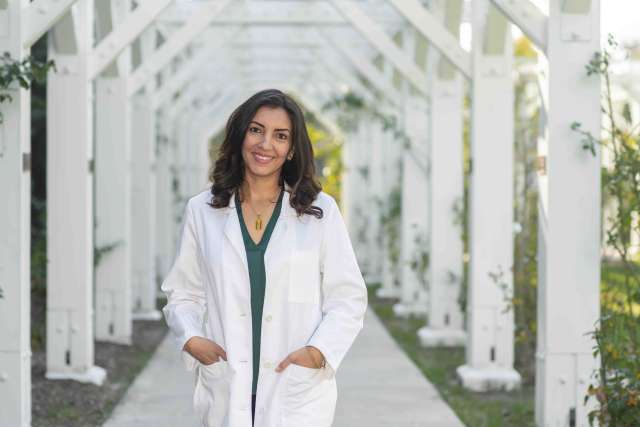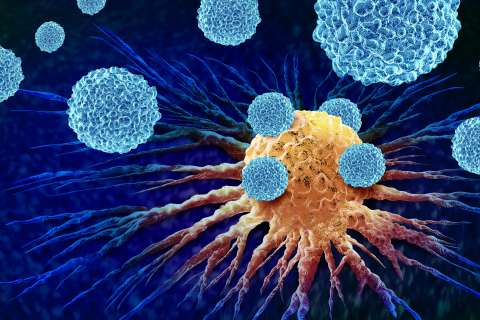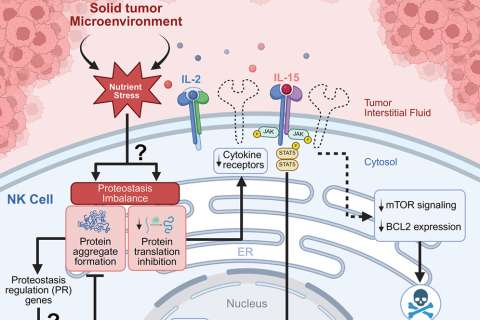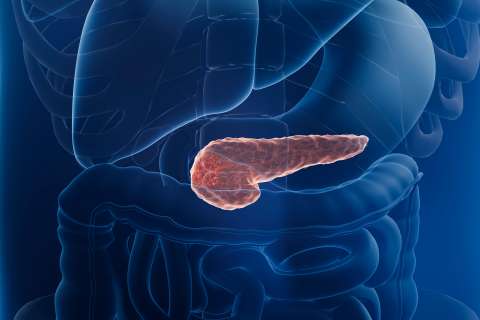When Mona Mojtahedzadeh, MD, decided to study medicine in her native Iran, she was following family tradition. Her dad is a pediatric cardiologist and her paternal grandfather was also a physician.
But when Dr. Mojtahedzadeh began studying psychiatry, specifically, she carried with her a family legacy. Her maternal grandfather received treatment for depression, which he discussed openly with loved ones.
“I think these experiences helped shape me coming into this field,” says Dr. Mojtahedzadeh, now a psychiatrist with the Simms/Mann-UCLA Center for Integrative Oncology.
“It has a lot of meaning to me, the work I’m doing here,” she says. “And that grandfather who had depression also suffered from cancer — lymphoma — during the years he lived in Los Angeles, though he never got to know his diagnosis.”
Now, Dr. Mojtahedzadeh draws on her family values, her years of practicing primary care in Iran, her humanitarian experiences working with refugees, the transgender population, people affected by HIV and patients at City of Hope Medical Center to provide compassionate counseling and treatment for those facing anxiety, depression or cognitive struggles alongside cancer diagnosis and treatment.
“Every single place I’ve worked at has had an impact on where I am now and how I’m practicing,” she says. “My family, training and work with vulnerable populations have helped me understand some of my core values that I proudly implement in to practice.”
A whole-person approach
Dr. Mojtahedzadeh conducts a full biological and psychosocial screening on each patient so she can address their specific psychopharmacological and integrative psychiatric needs, but the heart of her work is helping to foster self-acceptance, self-love and connection.
She approaches each individual holistically, beyond their cancer or mental health diagnosis — embracing the unique facets of their personalities, life roles, past experiences, cultures and spiritual perspectives.
“Our personhood matters, the fact that you are not defined by your illness,” she says.
“We are all human and we all have different aspects,” Dr. Mojtahedzadeh says. “I try to help patients realize and embrace their strengths as well as their increased susceptibility as humans to feeling fragile and vulnerable at times of hardship, such as during their cancer illness trajectory or any other struggle at hand.”
Working with the psycho-oncology team at the Simms/Mann Center, Dr. Mojtahedzadeh helps patients “put away the self-guilt and blame that, as humans, we tend to place on ourselves,” she says.
With warmth and understanding, she encourages patients to find kindness and compassion for themselves.
“I wish to help them find a sense of order, meaning and purpose in their stories during their most difficult times,” she says.
A spiritual element
Spirituality can play a significant role in cultivating such connections, she says. Dr. Mojtahedzadeh draws on spiritual aspects of healing in her work and in her personal life.
Growing up in a spiritual family, with parents and grandparents who loved poetry and nature, Dr. Mojtahedzadeh has both witnessed and experienced how connection to art, communities and the environment can be a profound source of meaning and comfort. She continues to write poetry, create art and prioritizes spending time outdoors with loved ones.
“I am a huge fan of the fact that feeling connected to something bigger than ourselves can help us be better accepting, forgiving and meaning-oriented individuals,” she says. “The sense of belonging and hope this generates can help bring about greater peace, comfort and purpose within us.”
Spirituality is different from religion, she notes. Spirituality is highly personal — it can be any connection to something broader than the self. And just as religious practices can bring structure, comfort and meaning to one’s life, discovering and getting in touch with personal spiritual beliefs can provide similar comfort and solace.
“There are connections between spirituality and mental health that have been proven,” Dr. Mojtahedzadeh says. “It can help individuals to better be able to accept adverse life events or to make meaning out of it and respond differently.”
Despite working with people whose lives have been affected by cancer diagnoses, Dr. Mojtahedzadeh finds her work hopeful. Citing the work of psychiatrist and Holocaust survivor Viktor Frankl and her pioneer mentors in the field, she notes that attitude is something we can change. And that’s what she works with patients to do.
“Once you realize what your own attitude is, label it, understand it and gain some control over it,” she says, “then why not gain back hope?”




